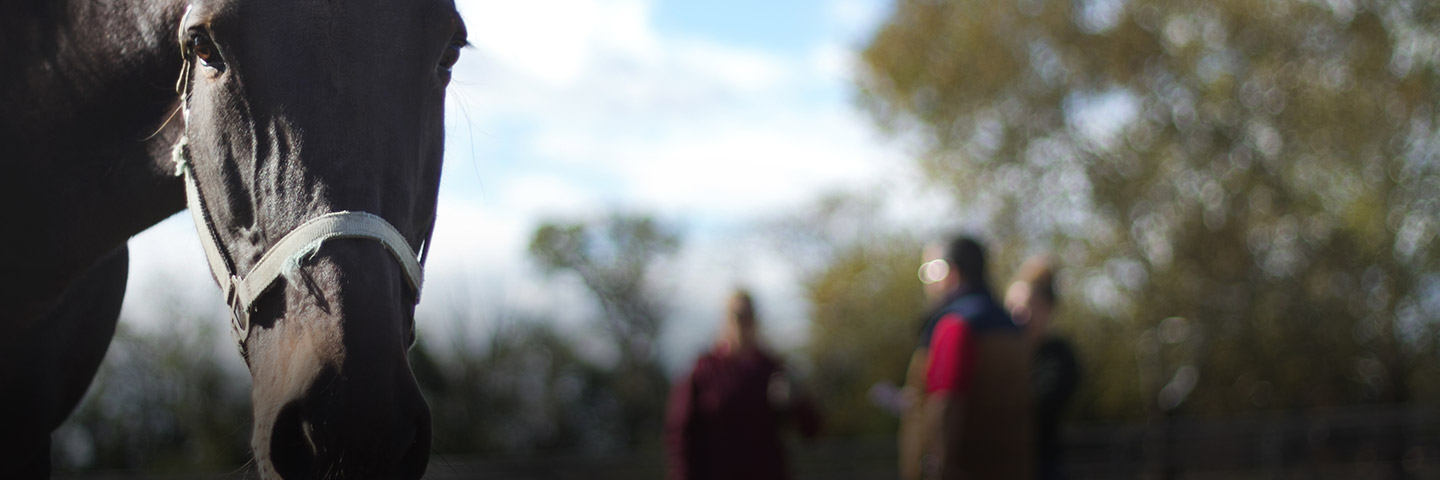Hay Everyone!
I was watching my two-legged friends the other day as I dozed in the shade. Have you ever noticed that they do some strange things sometimes? I mean, here was this person lugging a wheelbarrow around and filling it up with manure! I started to ponder this interesting behavior and decided I had better call in an expert to answer my questions. Have you ever wondered what to do with all that manure your horse produces? Well, wonder no longer. Check out this interview with Dr. Mike Westendorf, Extension Specialist at Rutgers University and our resident expert on manure management.
Boy am I glad I called in an expert to answer my questions! I think the coolest thing I learned during the interview is that your horse manure can be a valuable resource. Now, these people walking around filling up a wheelbarrow with manure makes more sense to me. It’s almost like they’re walking around picking up gold nuggets! (The staff at the Equine Science Center say they wish that were the case!) What is it about manure that makes it so valuable? Well, I learned from Dr. Westendorf that it’s full of nutrients like nitrogen, phosphorous, and potassium. These nutrients are critical for plant growth, so manure makes an excellent fertilizer!
All these wonderful nutrients can pose a problem, though. If not properly managed and stored these nutrients begin to leach from the manure and contaminate water or other valuable resources. That’s why Dr. Westendorf thinks the single most important thing you can do to manage manure well is to have a designated storage area. This means you’ll have to collect any manure and soiled bedding and store it. You don’t want your storage site to be too close to a water source such as a creek or pond. Covering your manure either by housing it inside a shed or by covering it with a tarp will help keep rainwater from soaking it and leaching out the nutrients.
Many people choose to compost their manure. The process of composting begins to break down the manure and other components. This has the advantage of killing off parasites because of the heat associated with the composting process. This makes compost safe to spread back on your horse pastures. Many people also like to buy compost. It can make excellent fertilizer for gardens. You just have to be careful that your compost doesn’t contain any medications, fly sprays, or other chemicals that could harm the plants or consumers. Thinking carefully about whether you use fly spray, feed through dewormers, or other medications can help you determine if your horse’s manure and compost is likely to contain substances you should be worried about spreading on your plants.
If you have more questions about managing your manure, you can check out the Managing Manure on Horse Farms: Spreading and Off-Farm Disposal Fact Sheet. It has more details about the typical nutrient composition of manure and what this means for spreading it as fertilizer.
Not only does manure management make sense from an environmental perspective, it’s also good for your horse’s health and pasture management. Keeping your pastures and stalls clean can help reduce parasite infestations (Eek! I don’t like to think about slimy worms inside of me!). Of course, having less manure around will also attract less flies. Plus, your farm will look much better without all of that manure lying around.
The next time you look at that pile of manure your horse produces, remember it’s actually a gold mine of nutrients and resources! Now I know why I see people marching around with wheelbarrows full of manure!
Until next time!
Your Friend,

Lord Nelson

